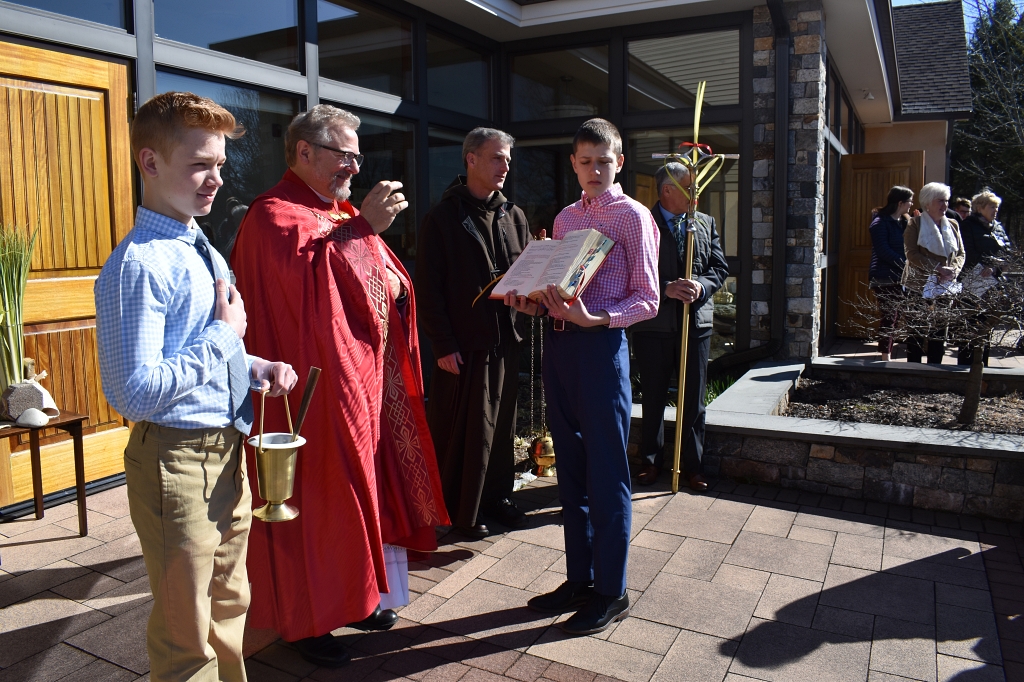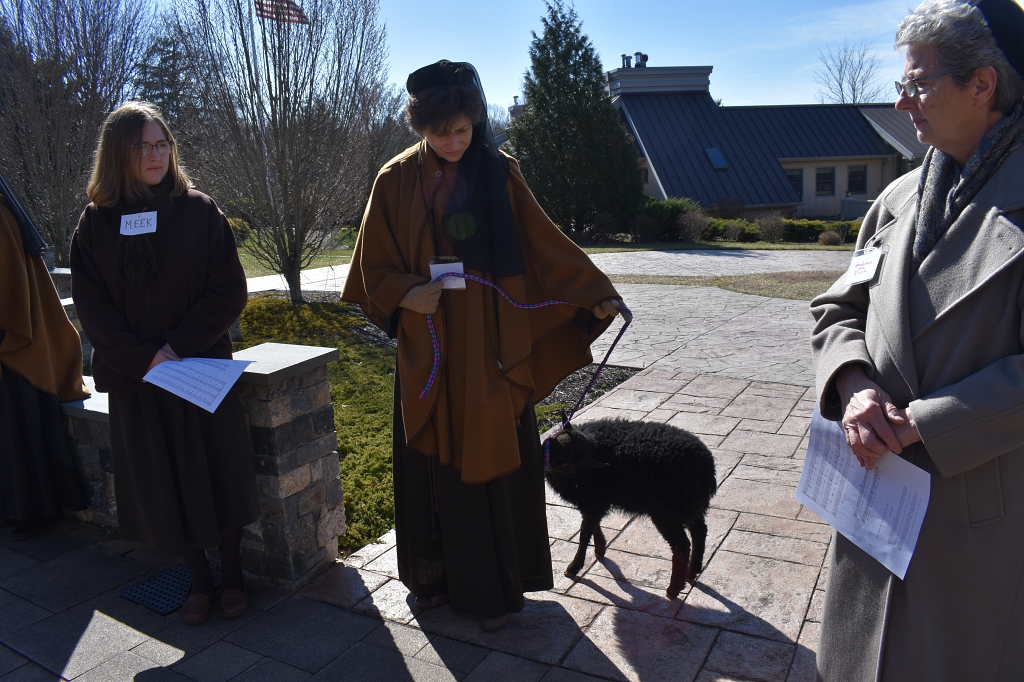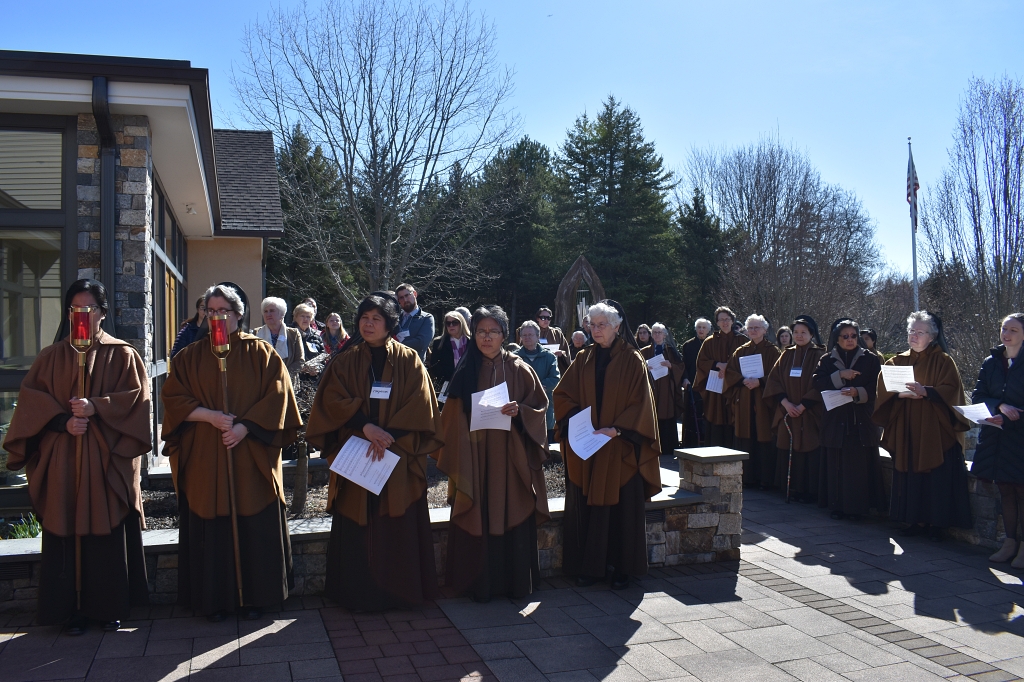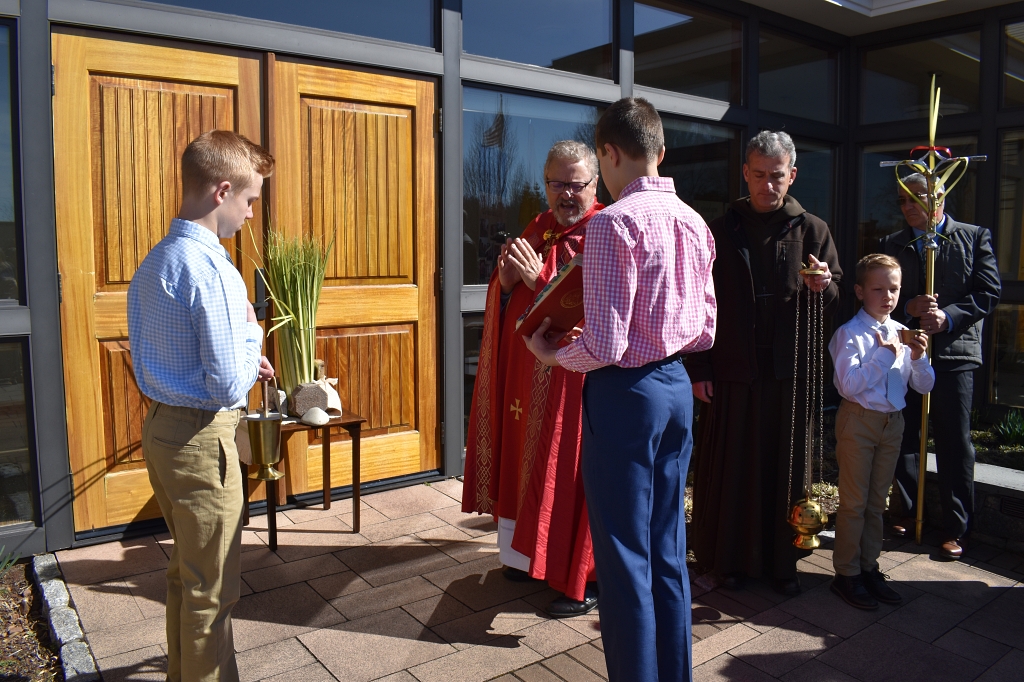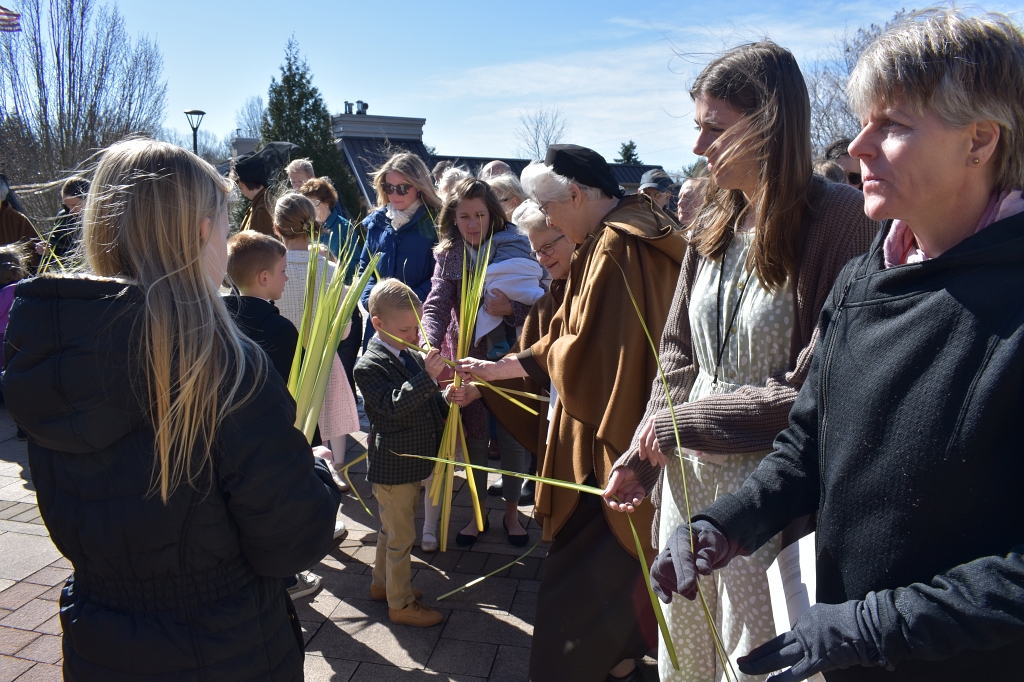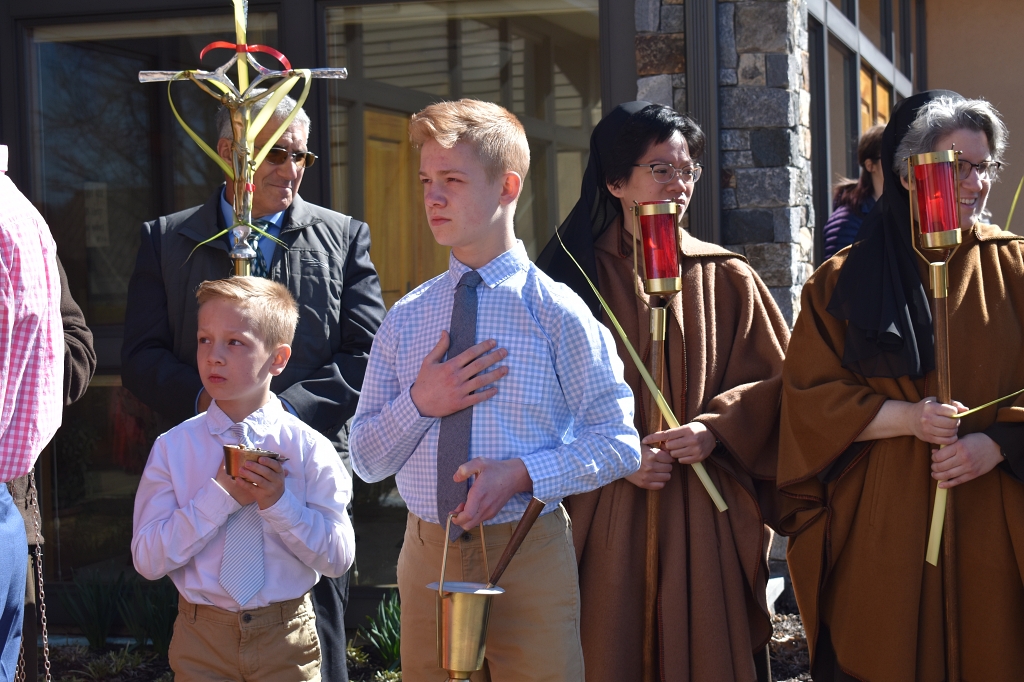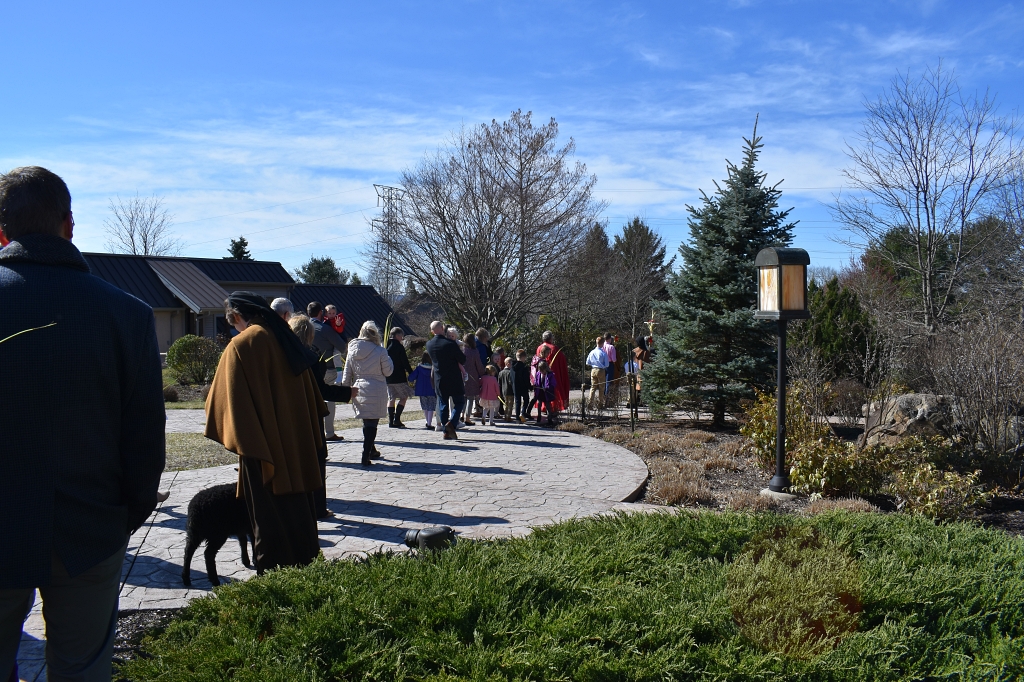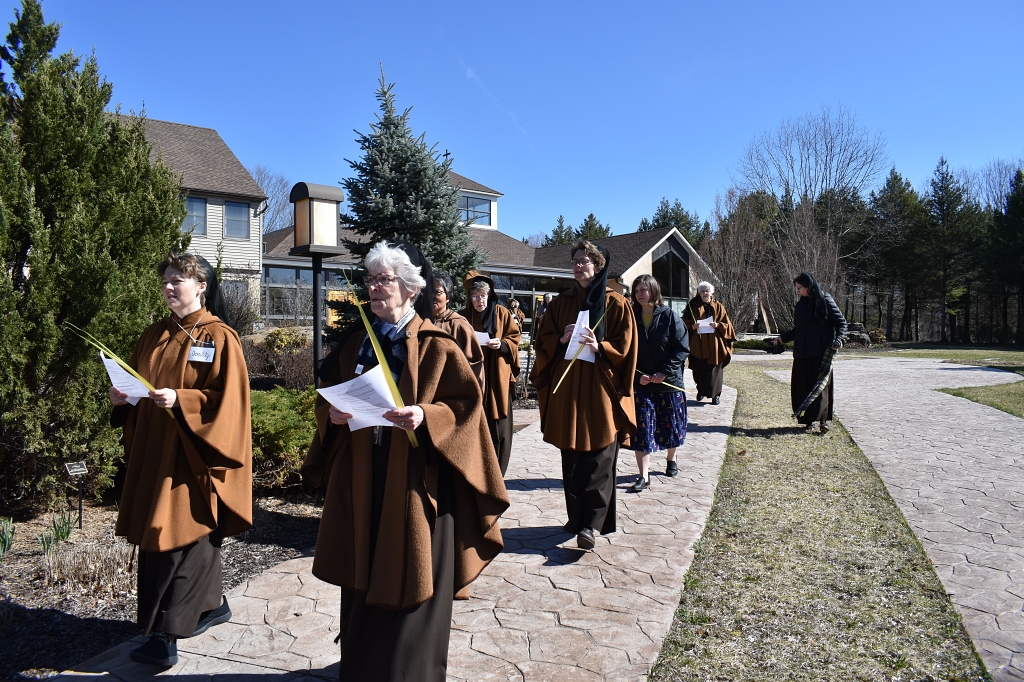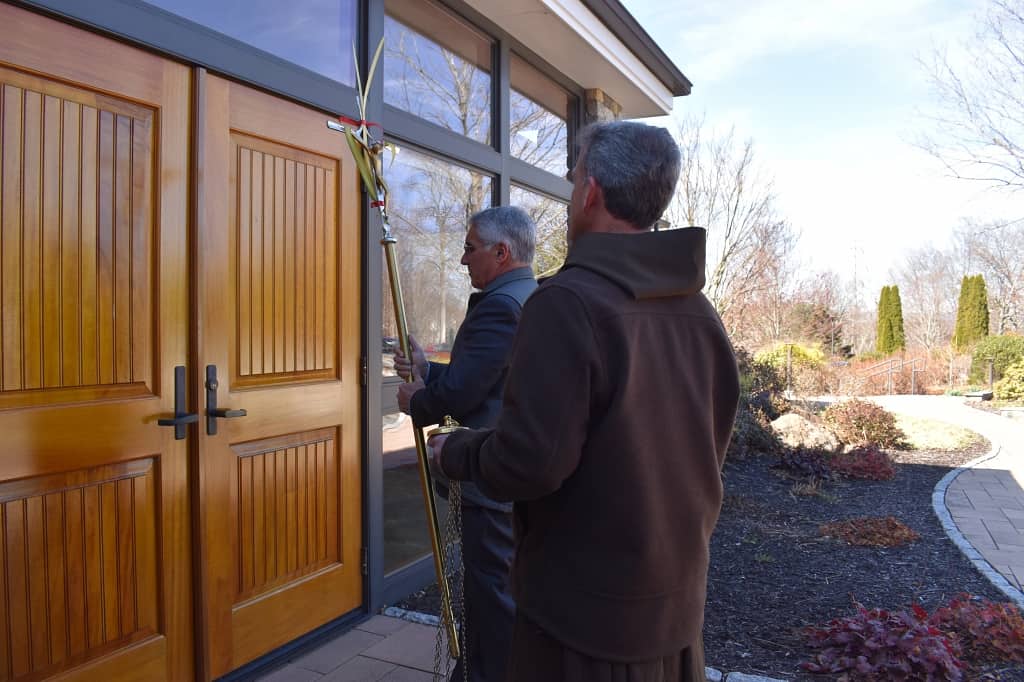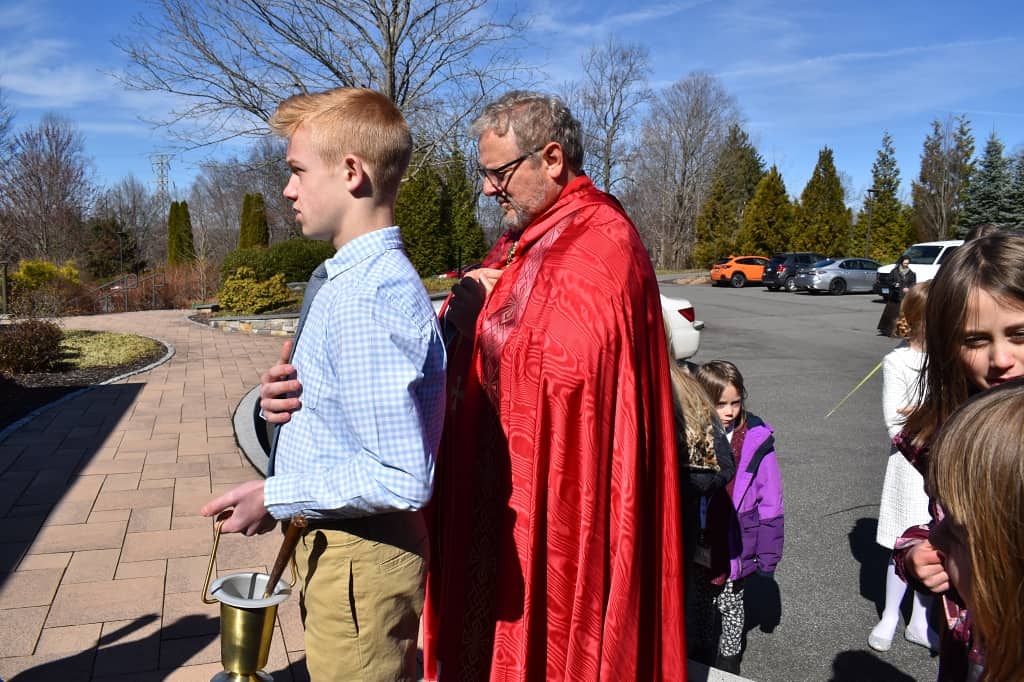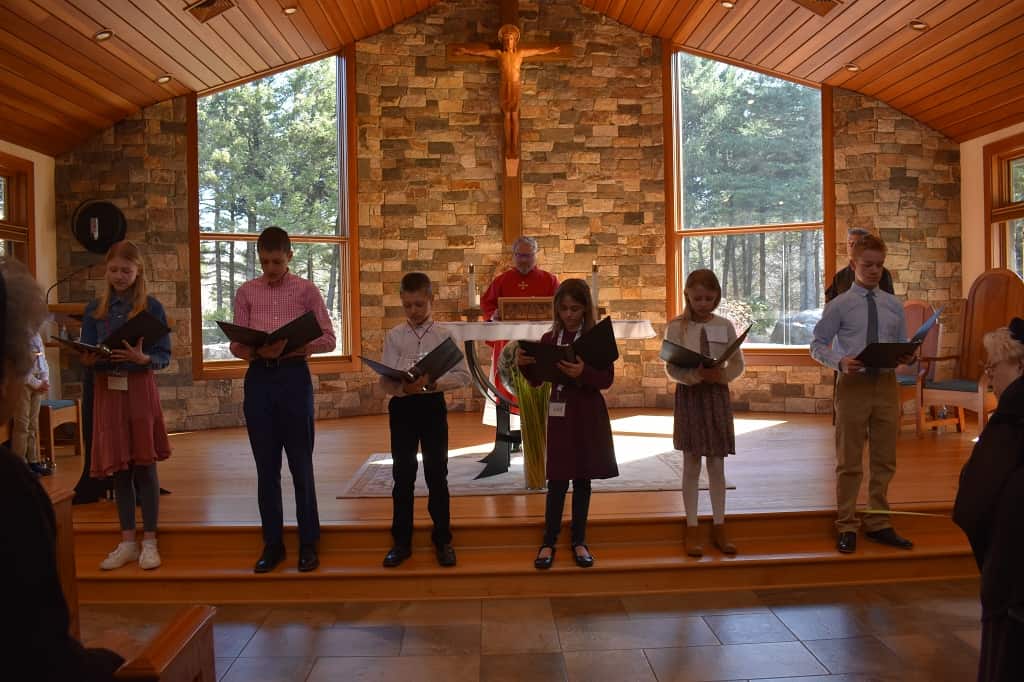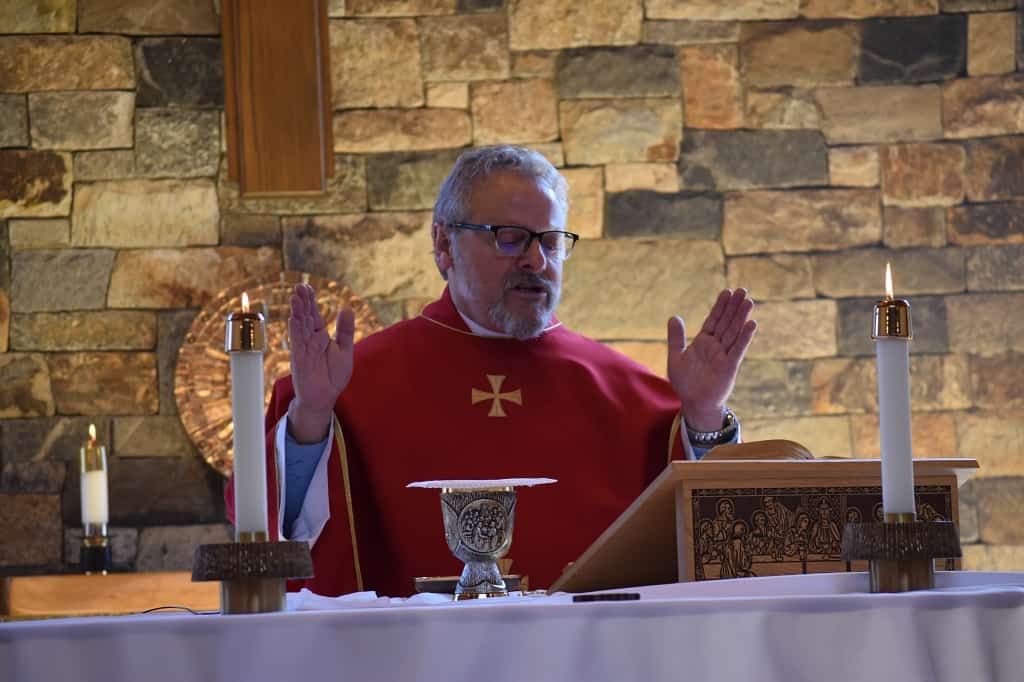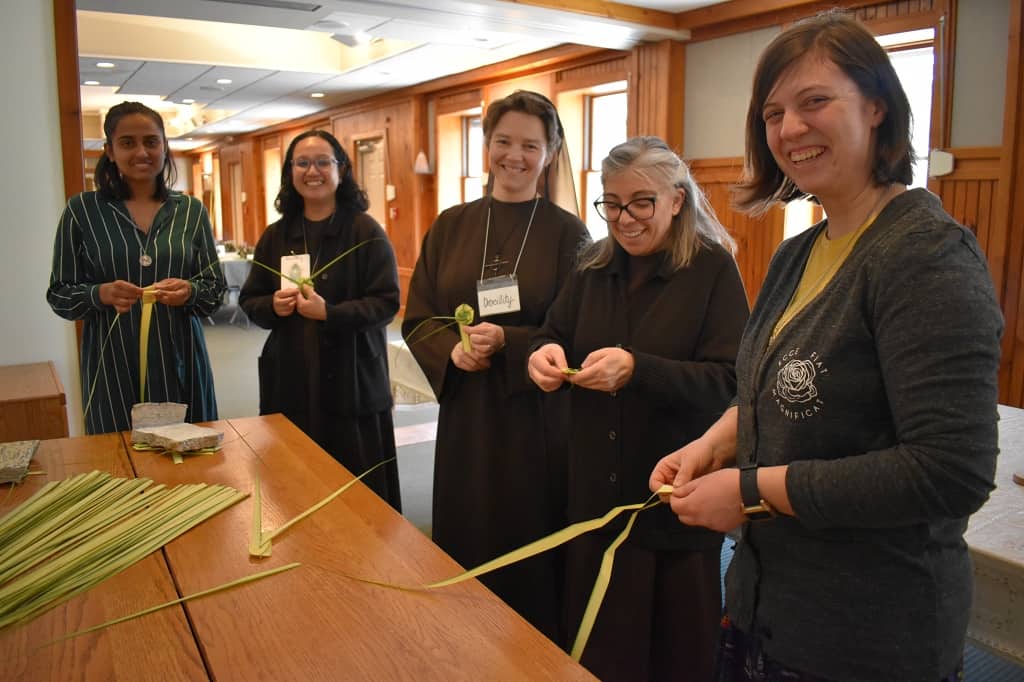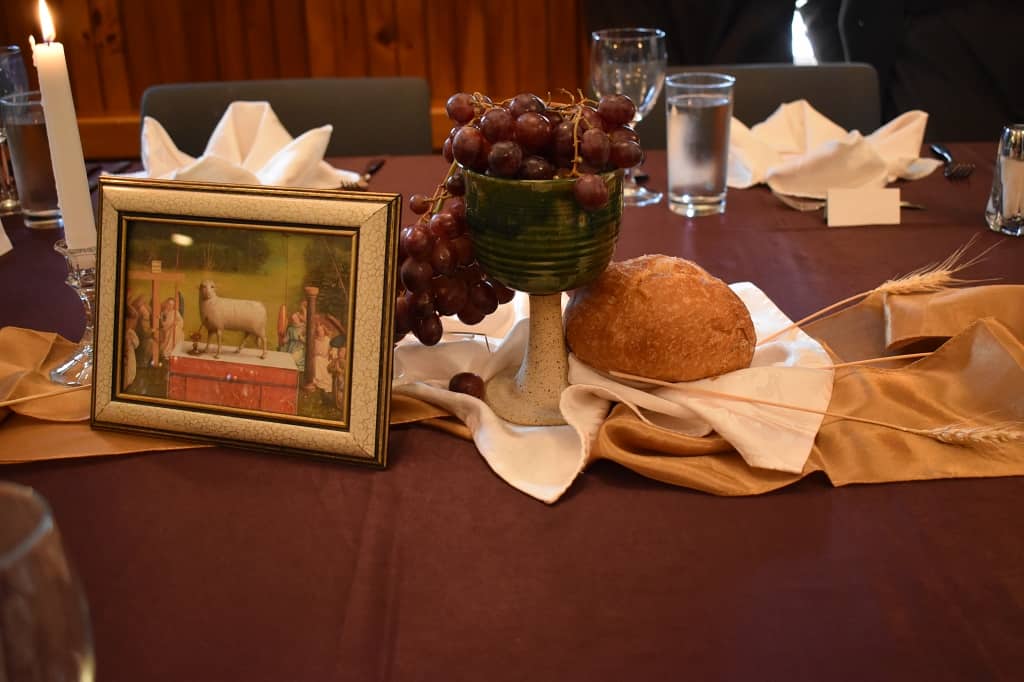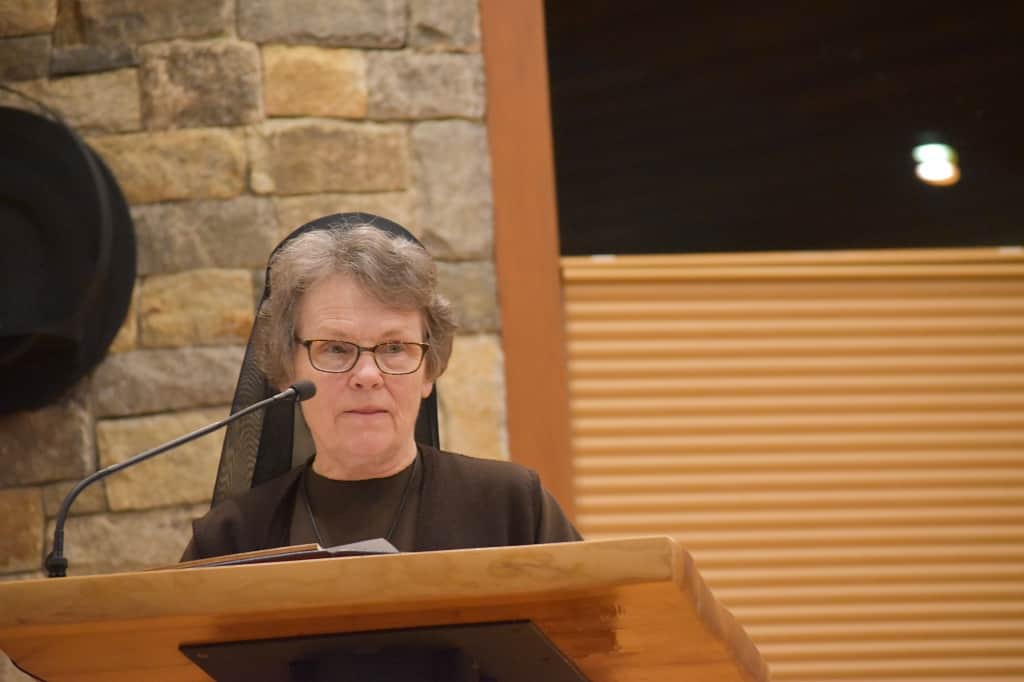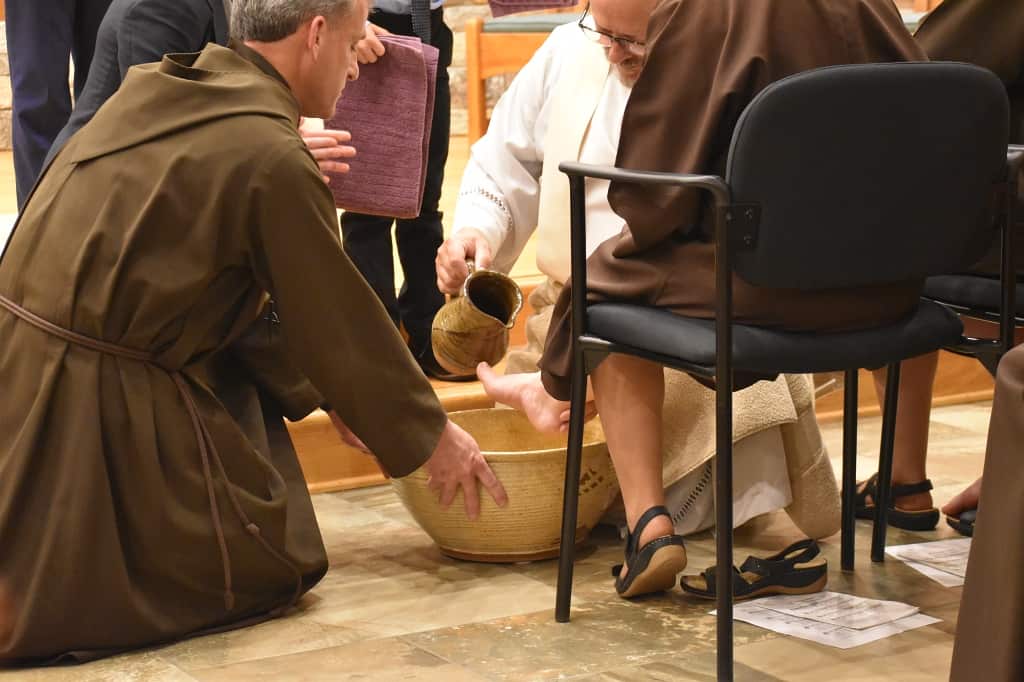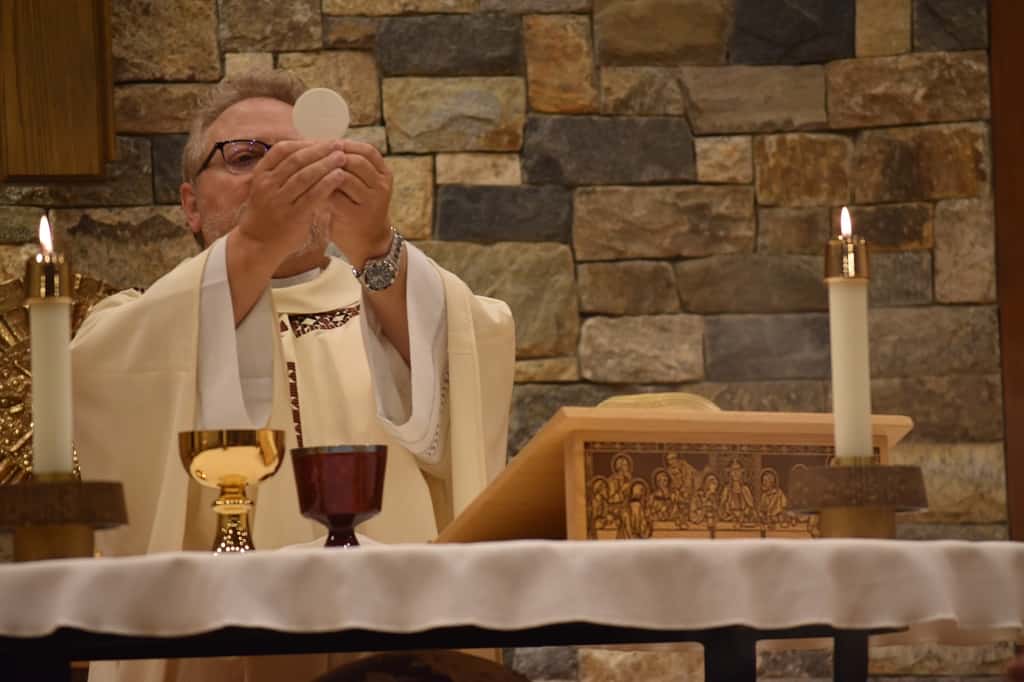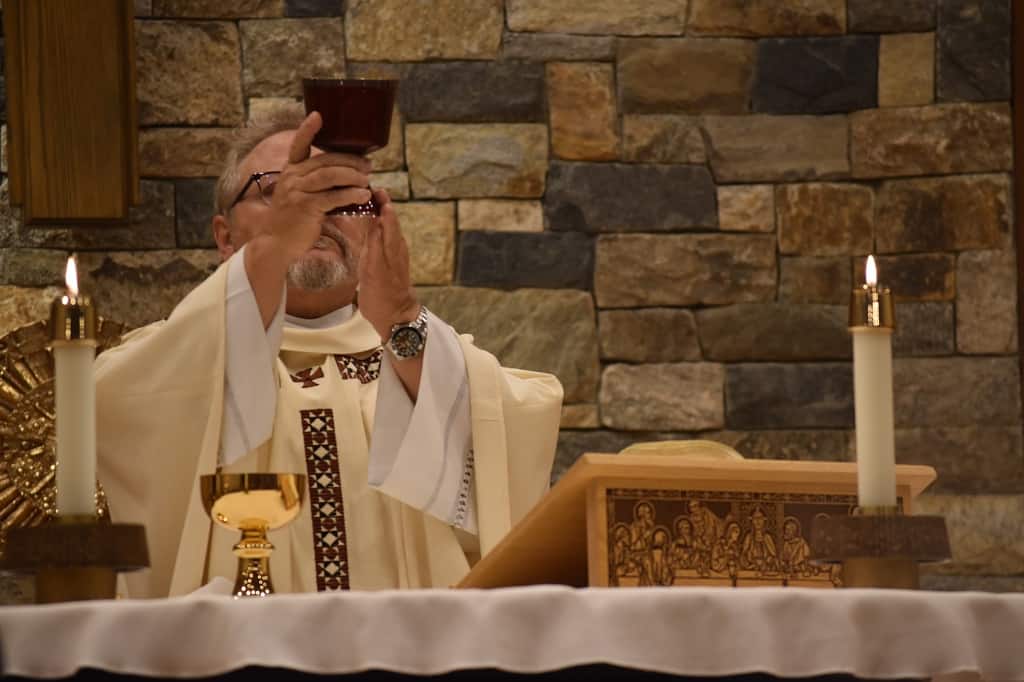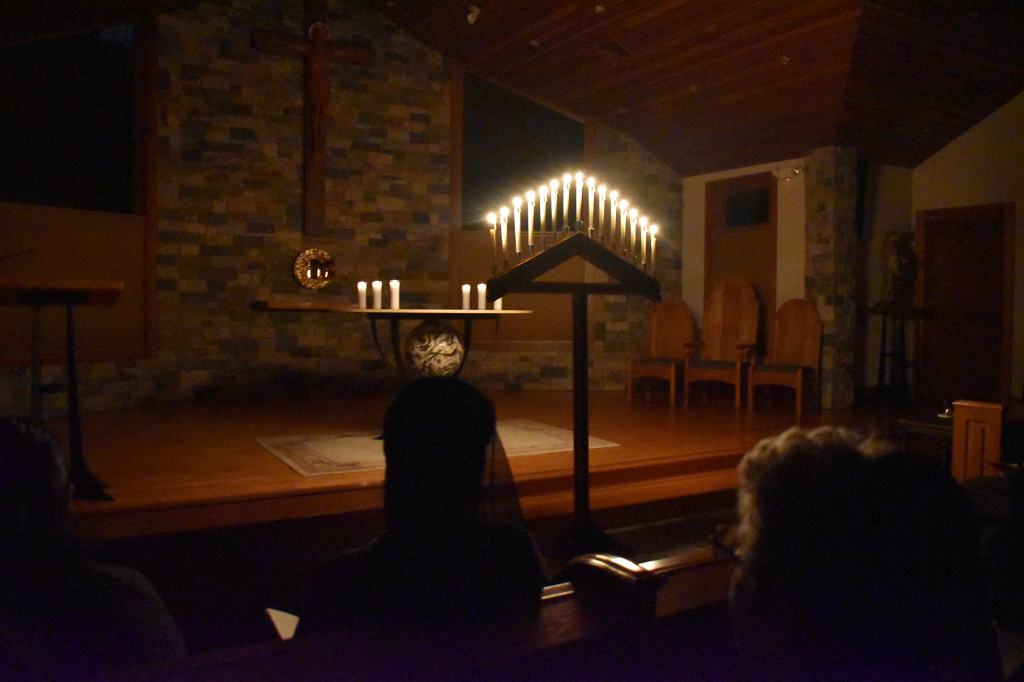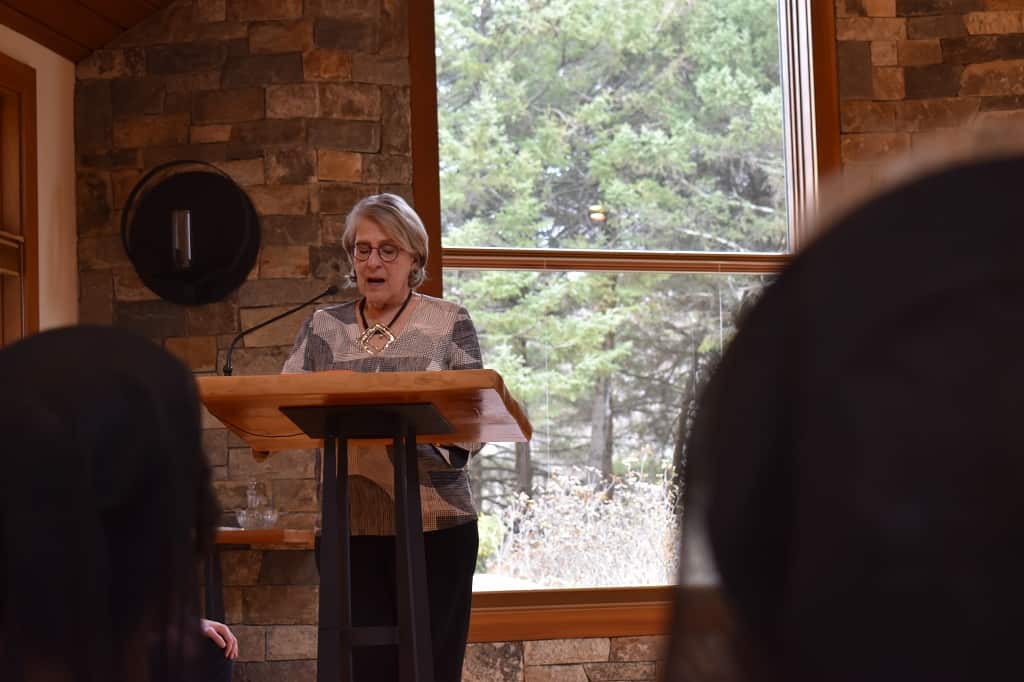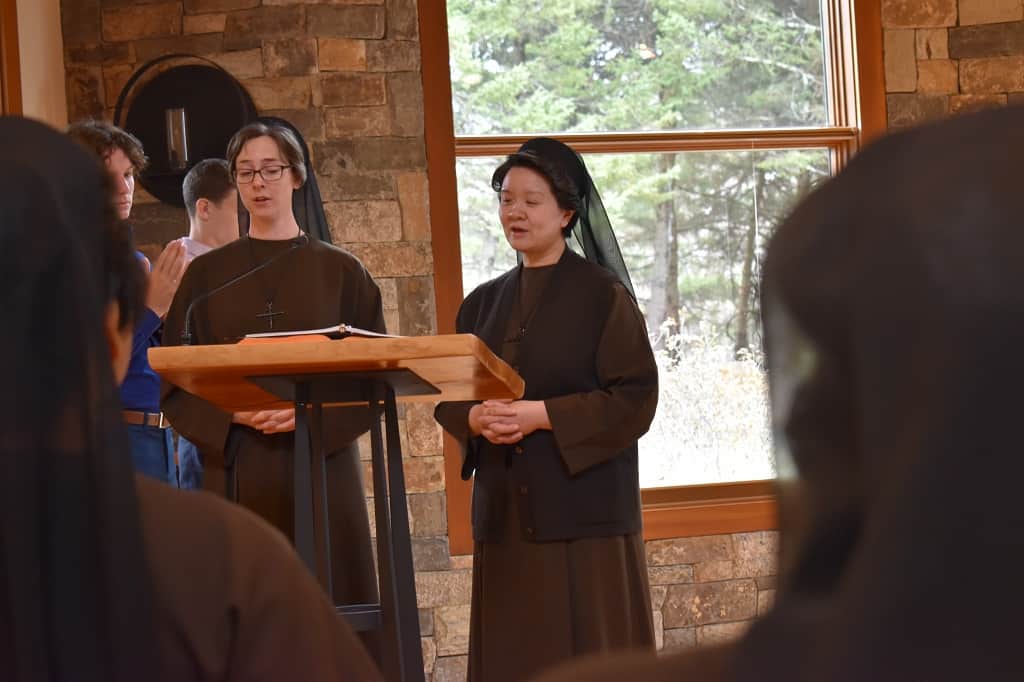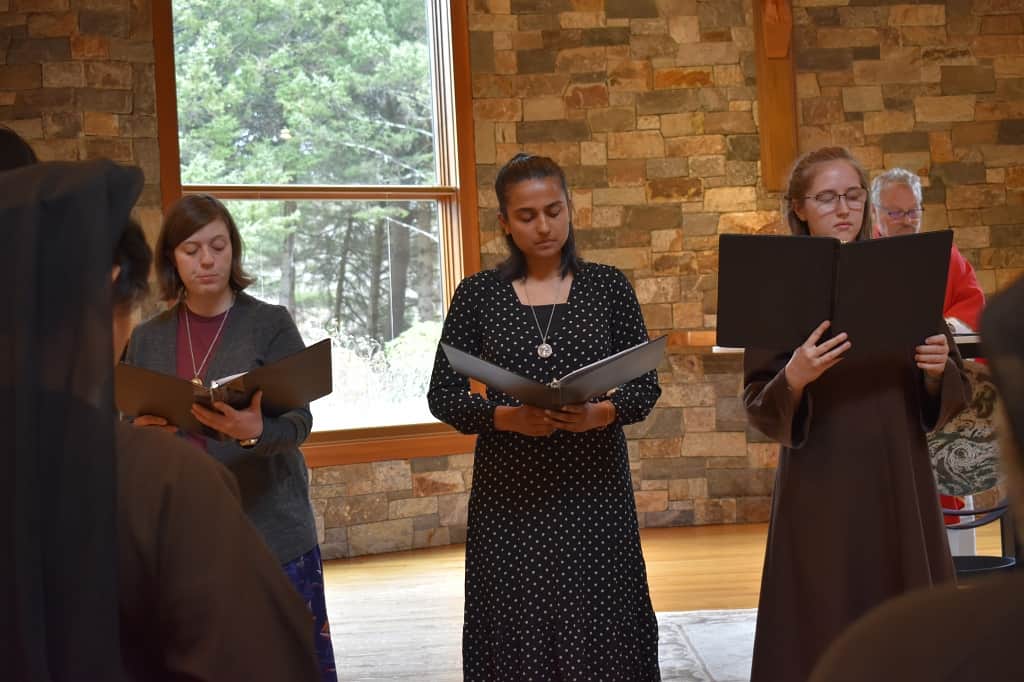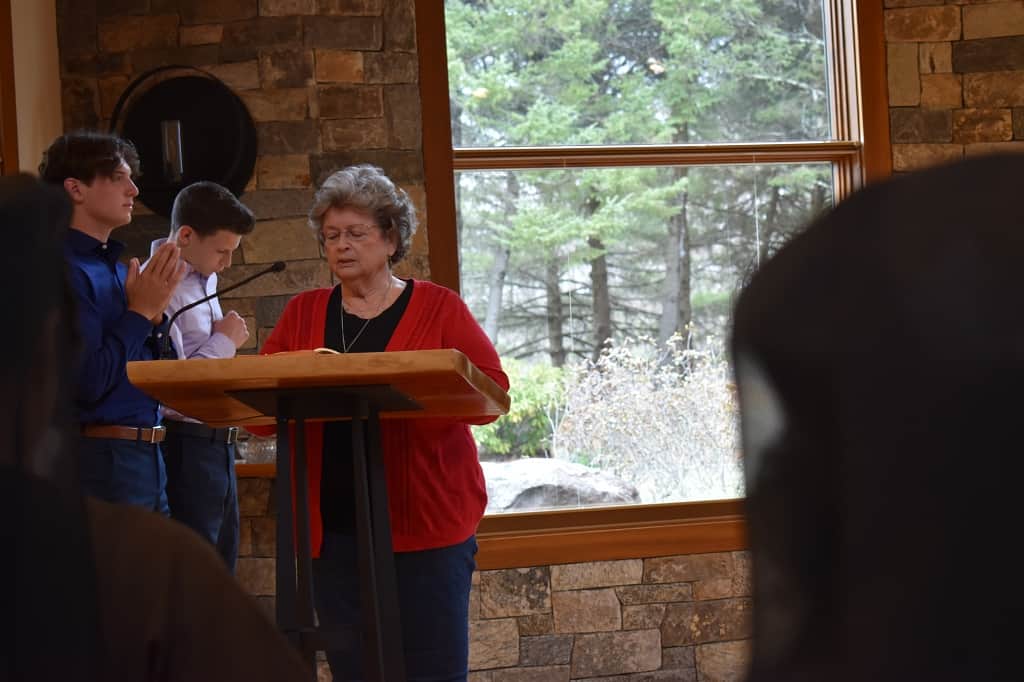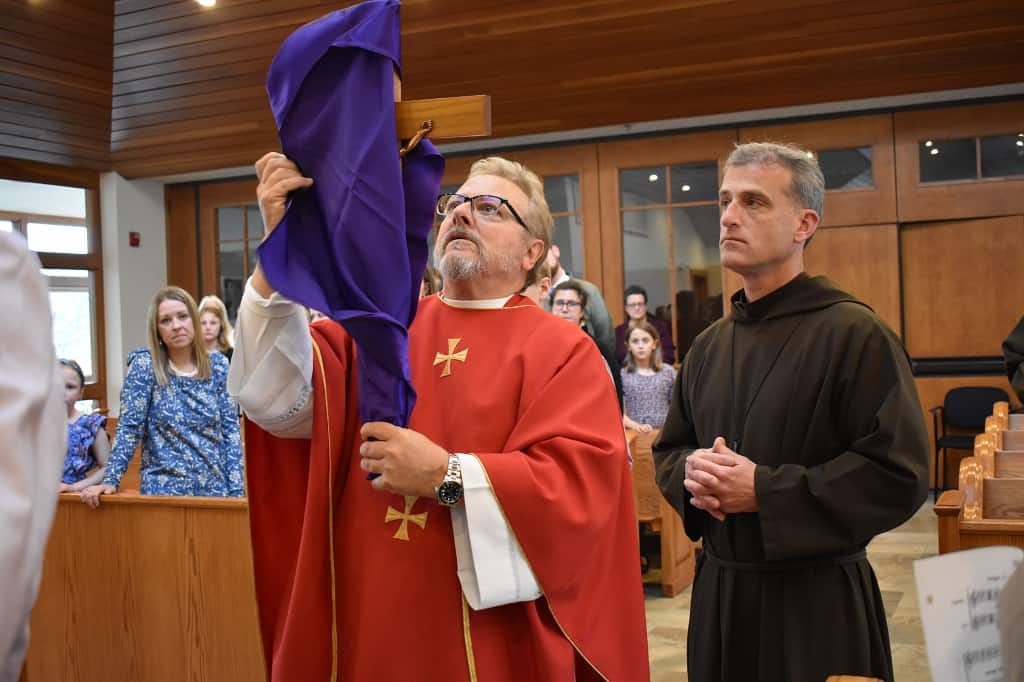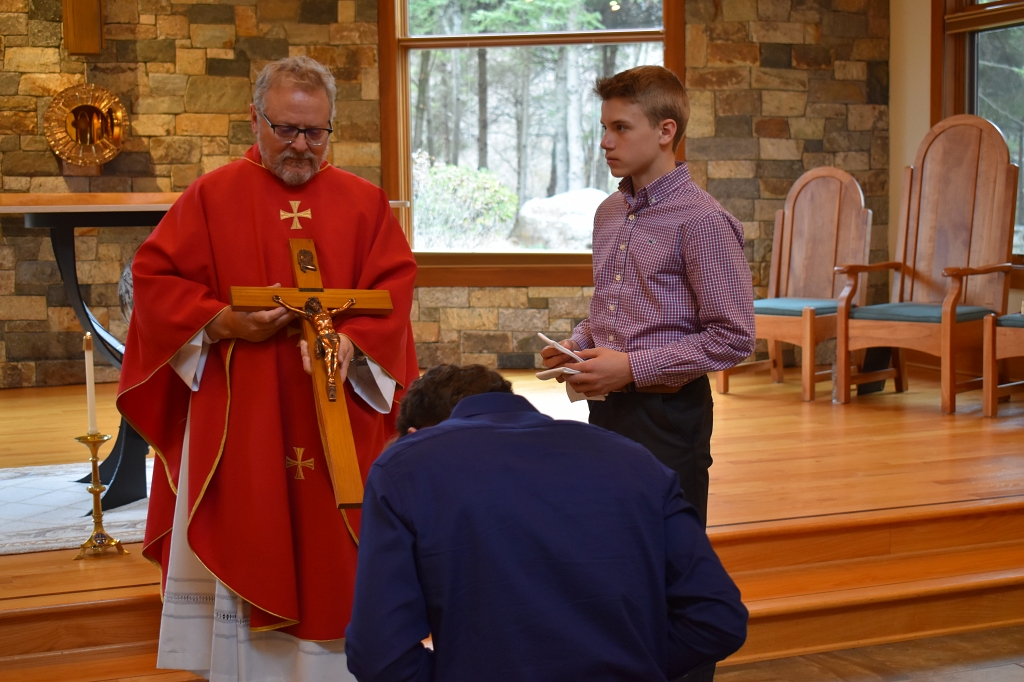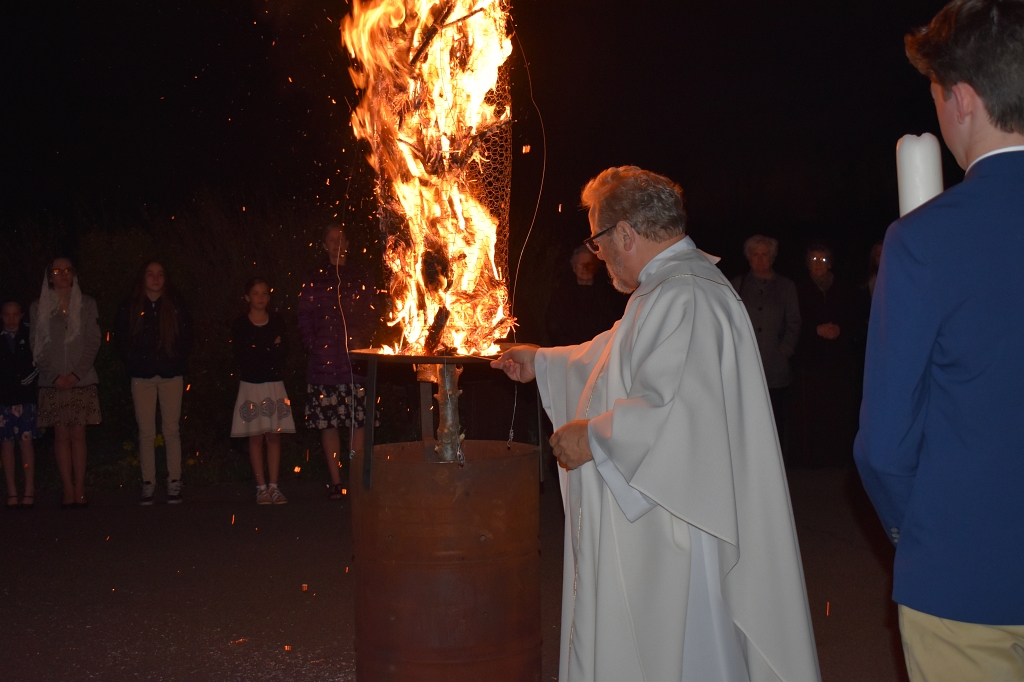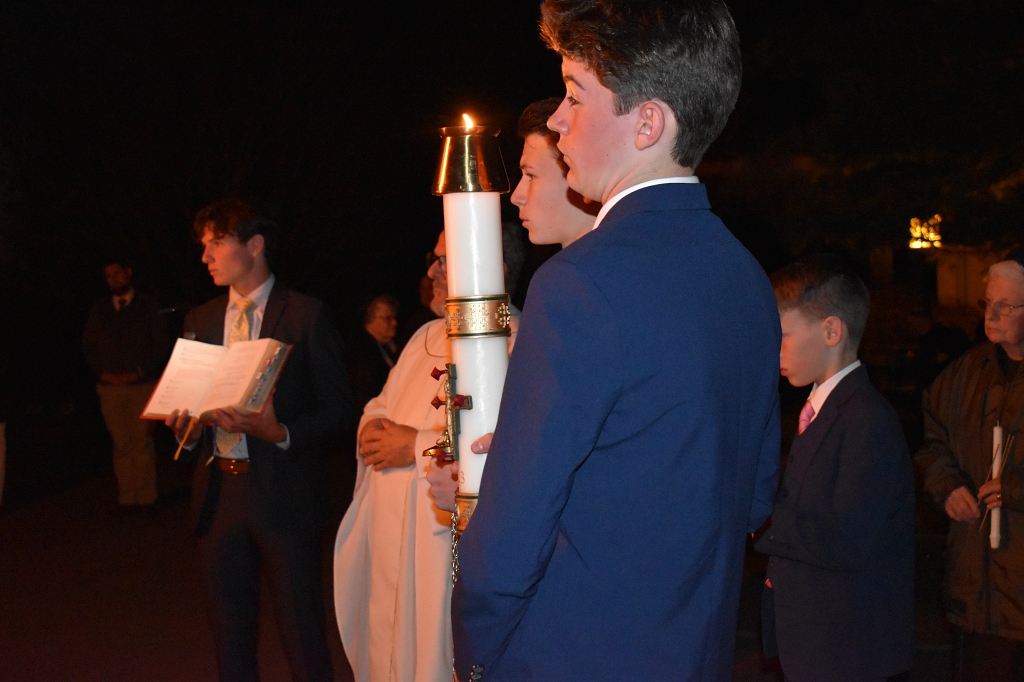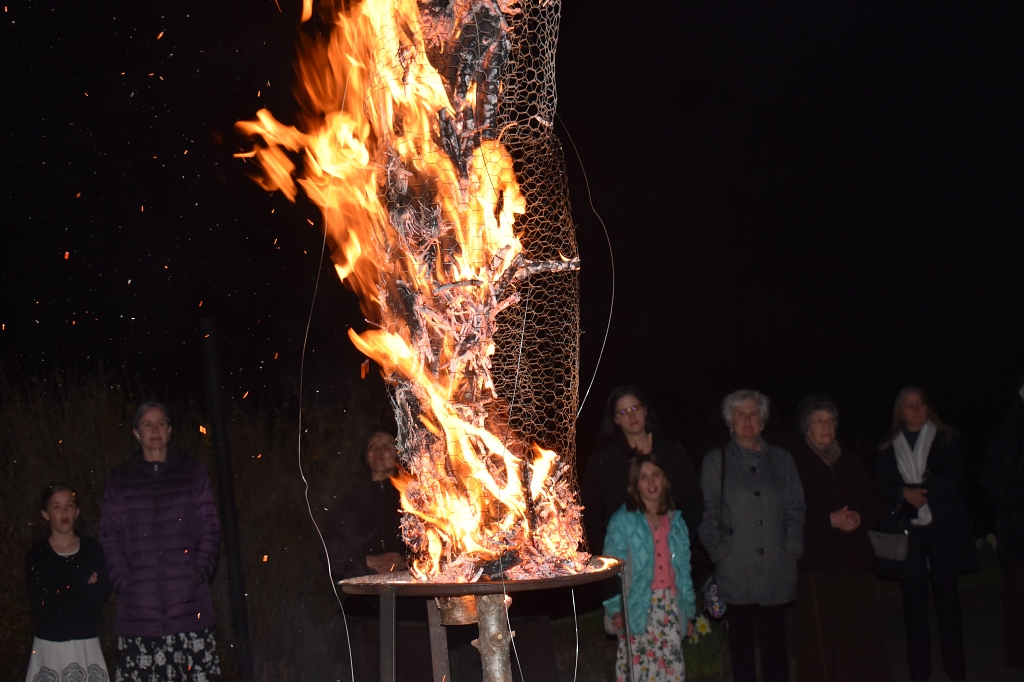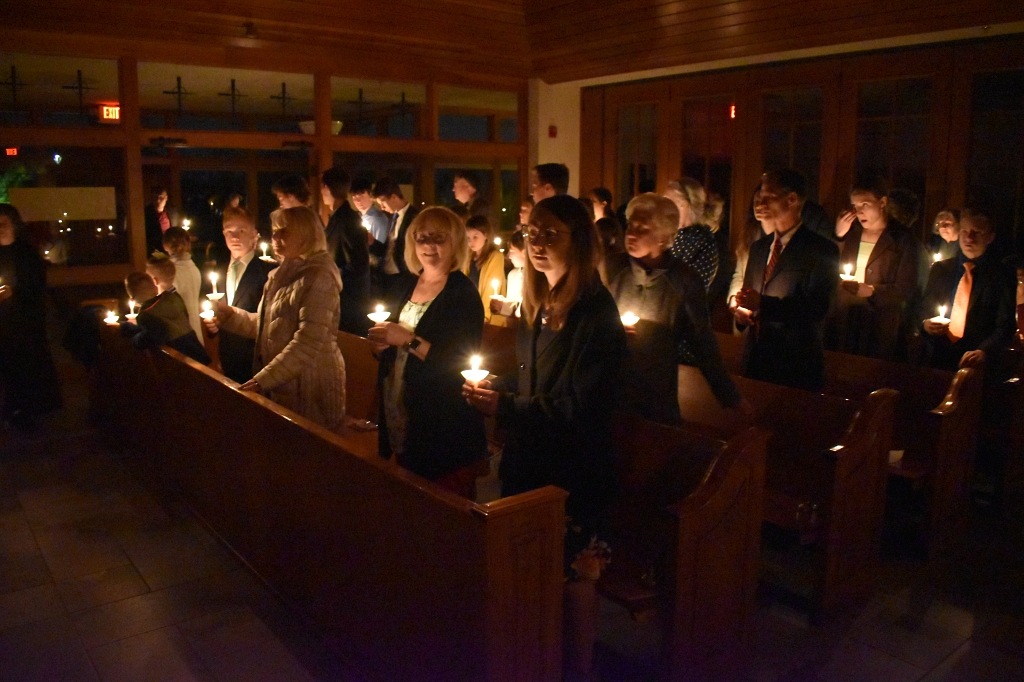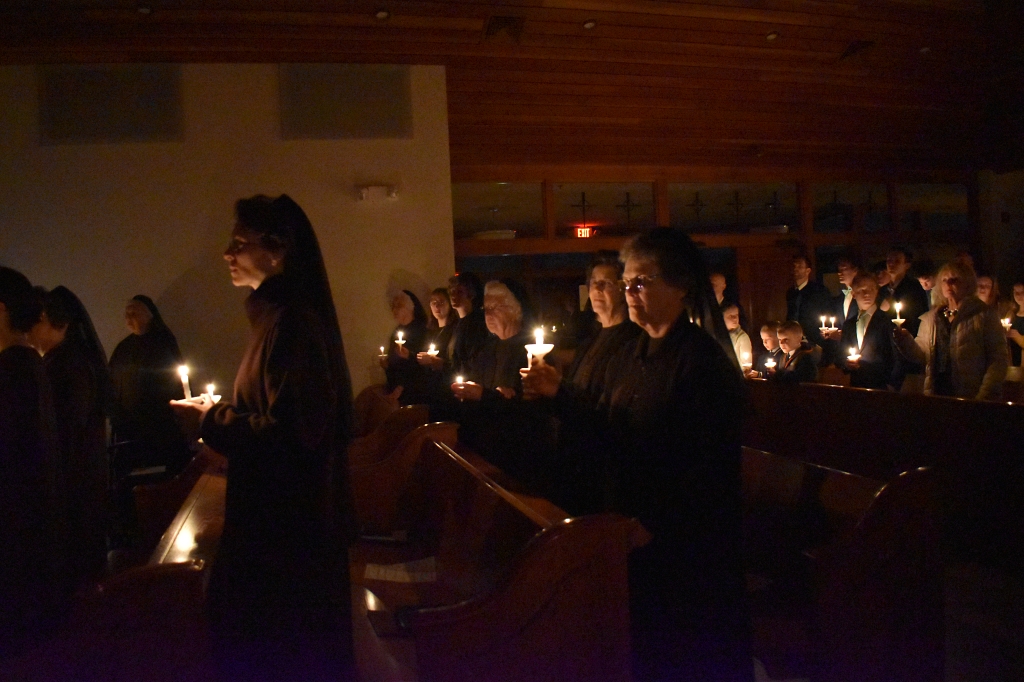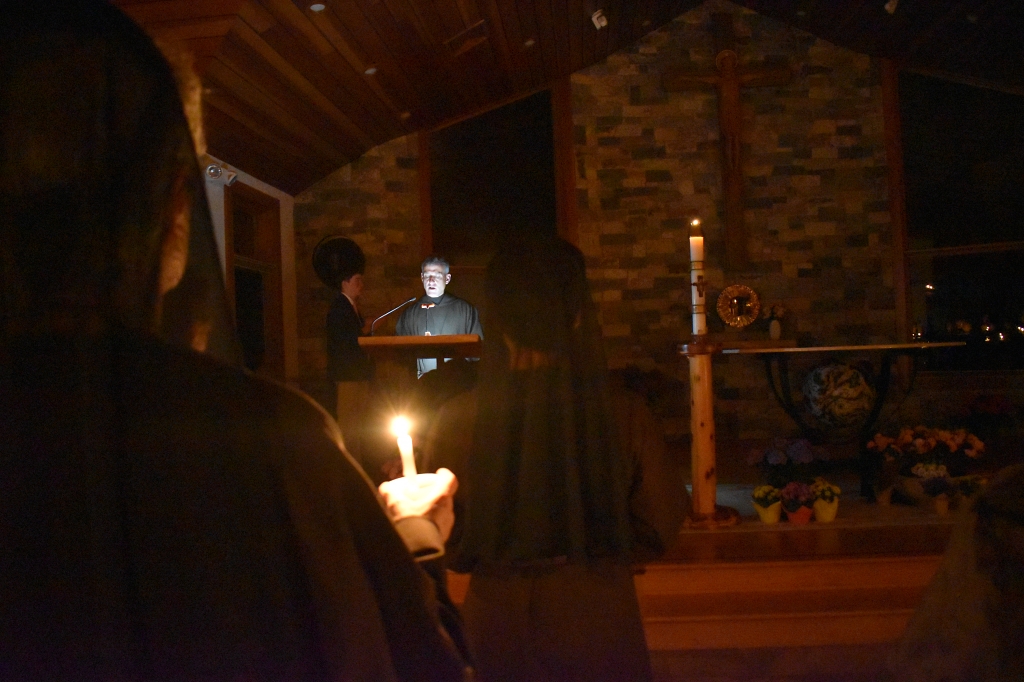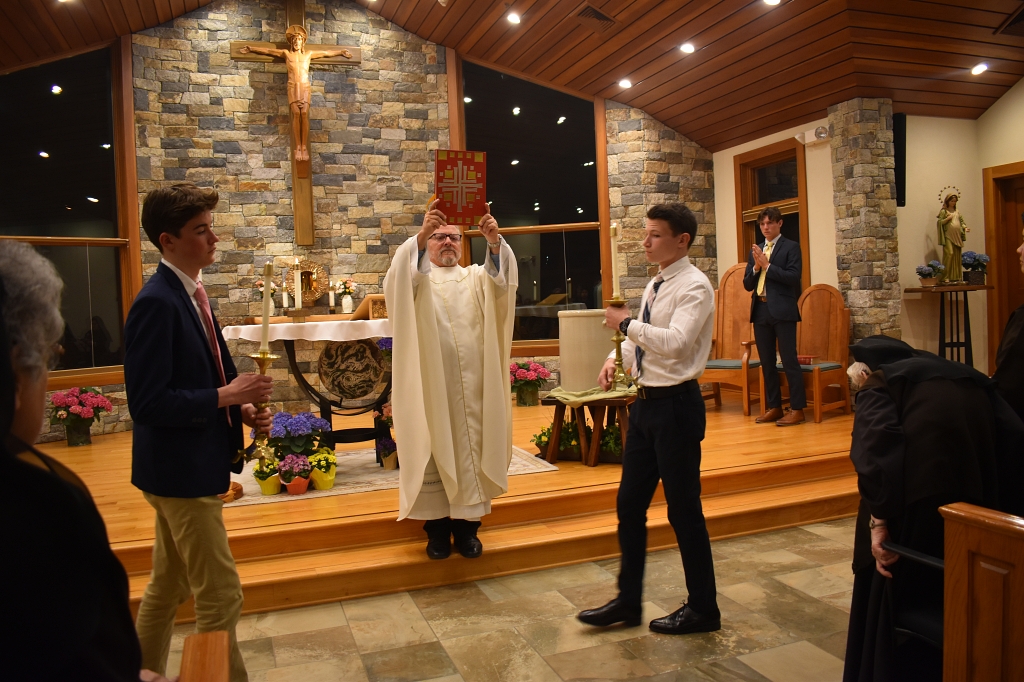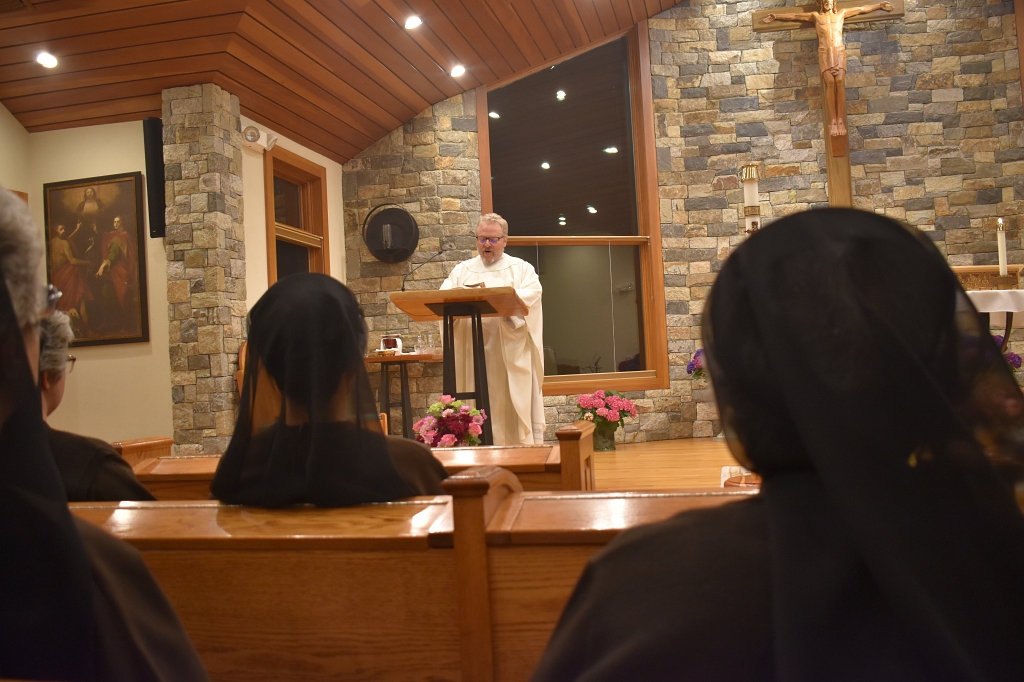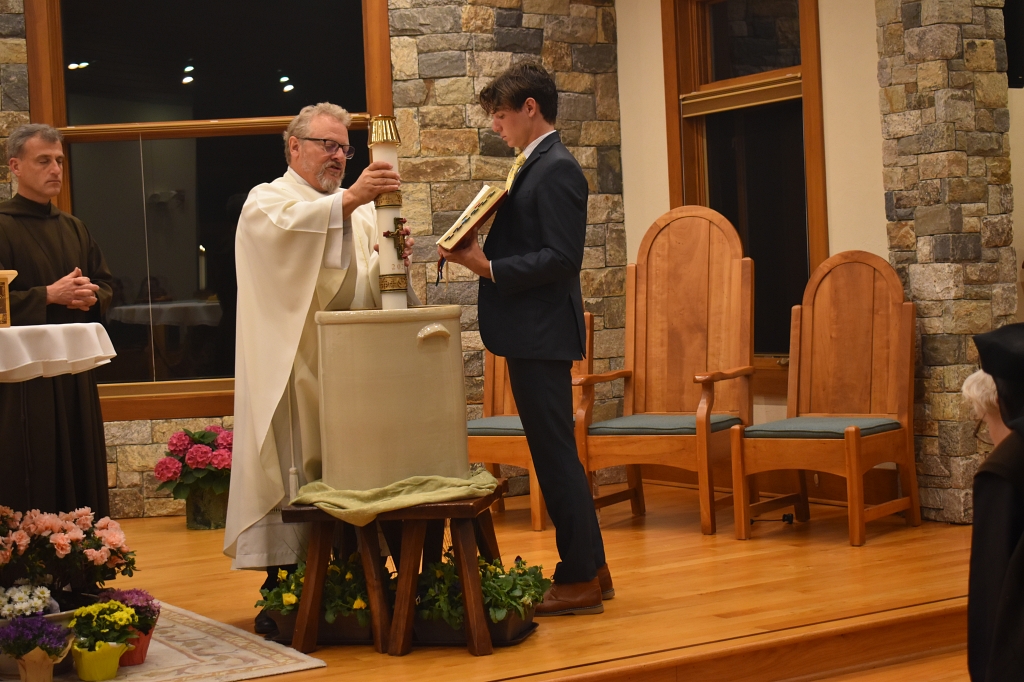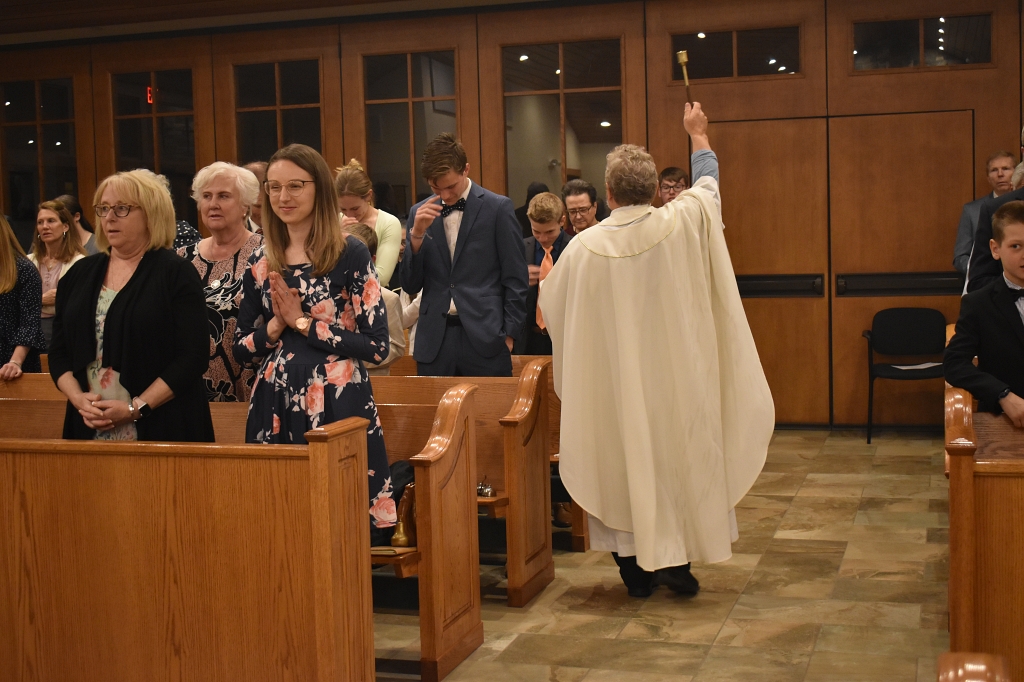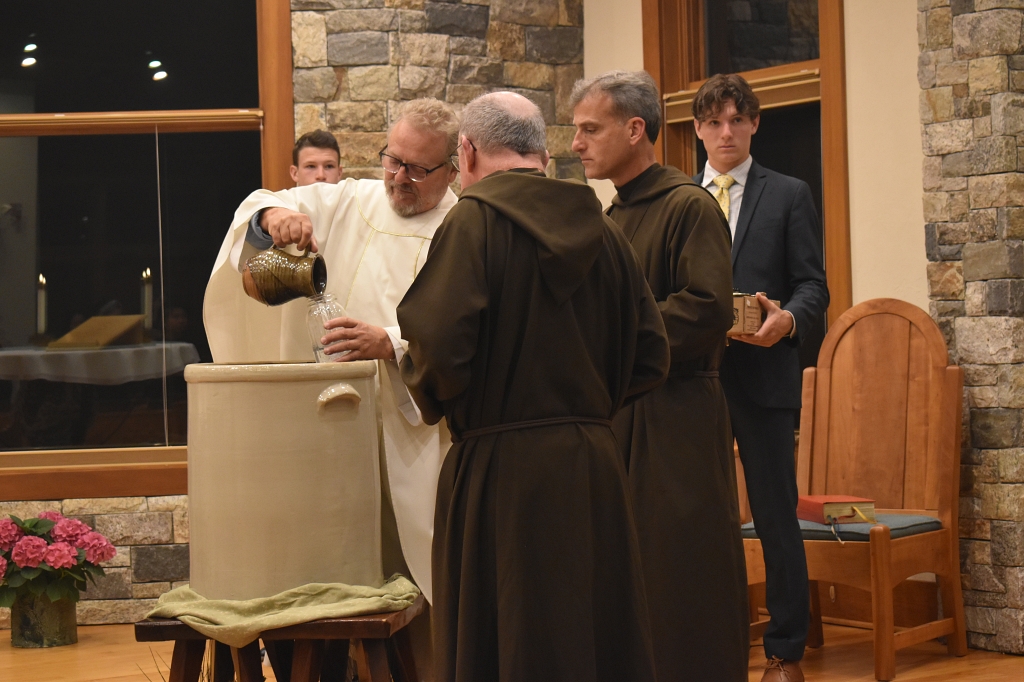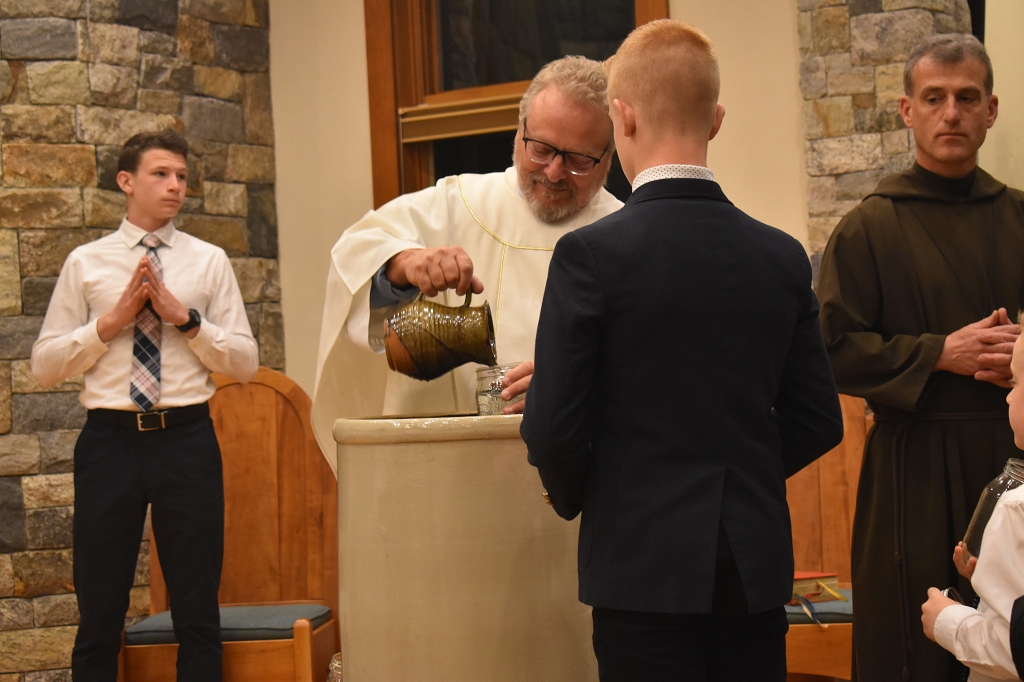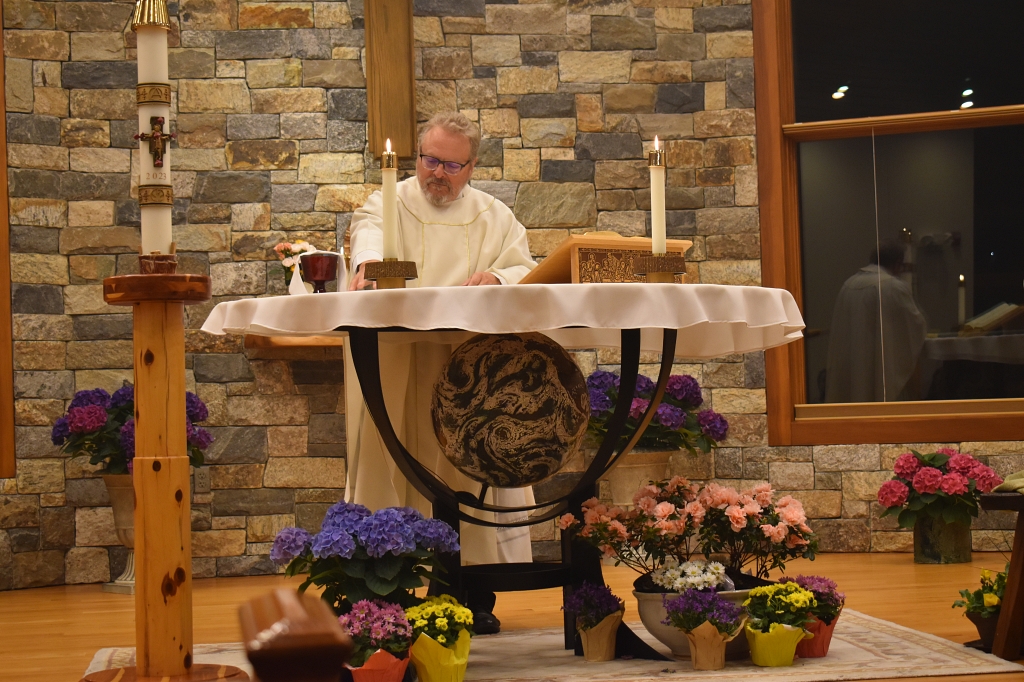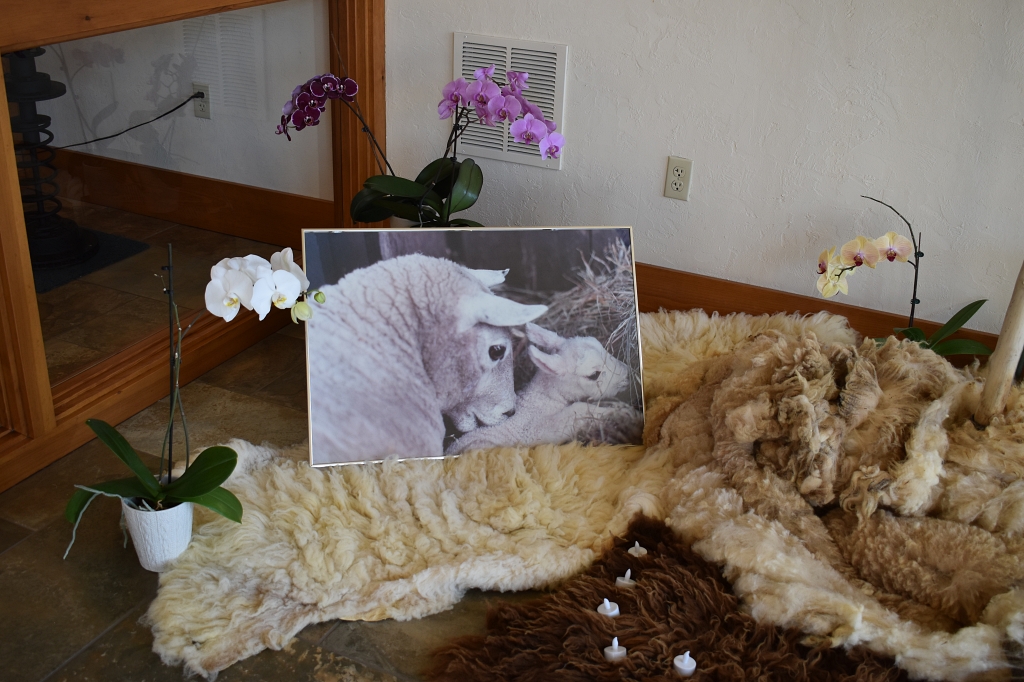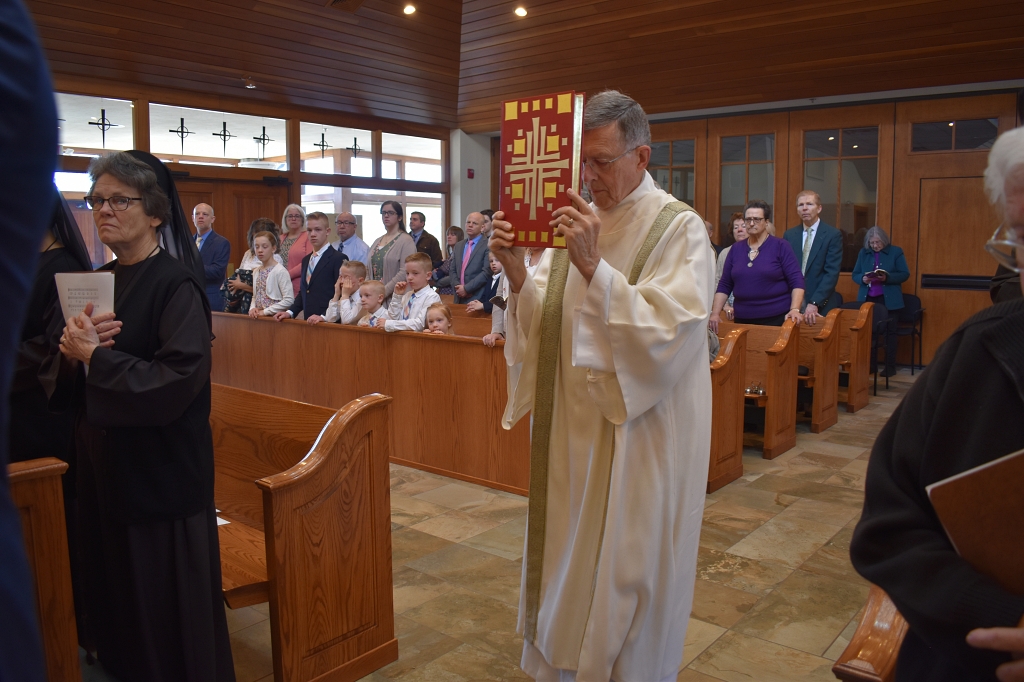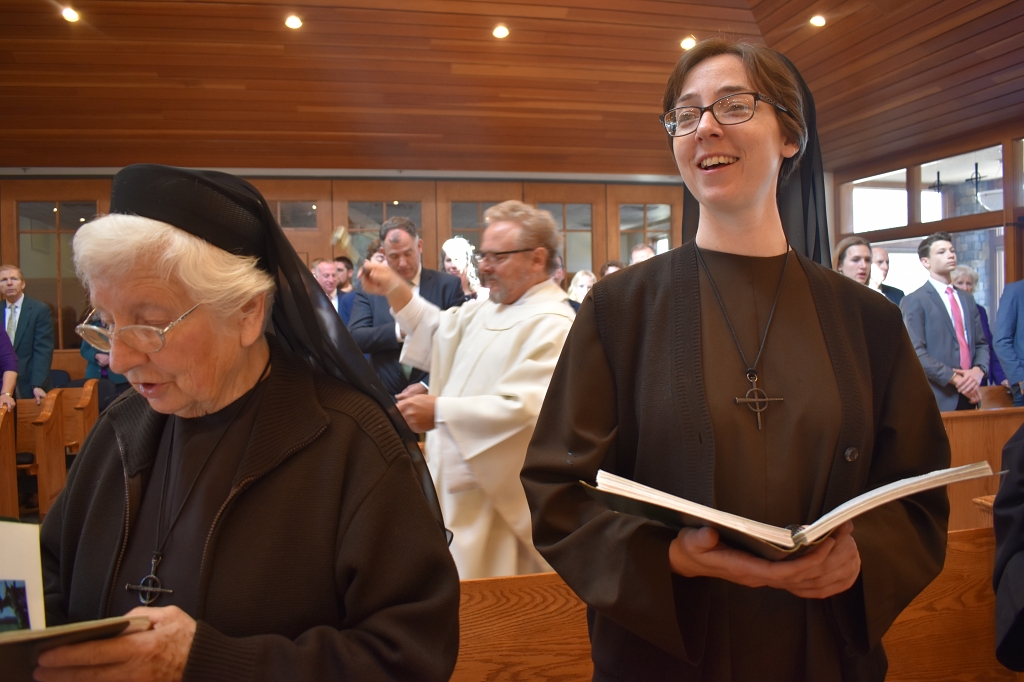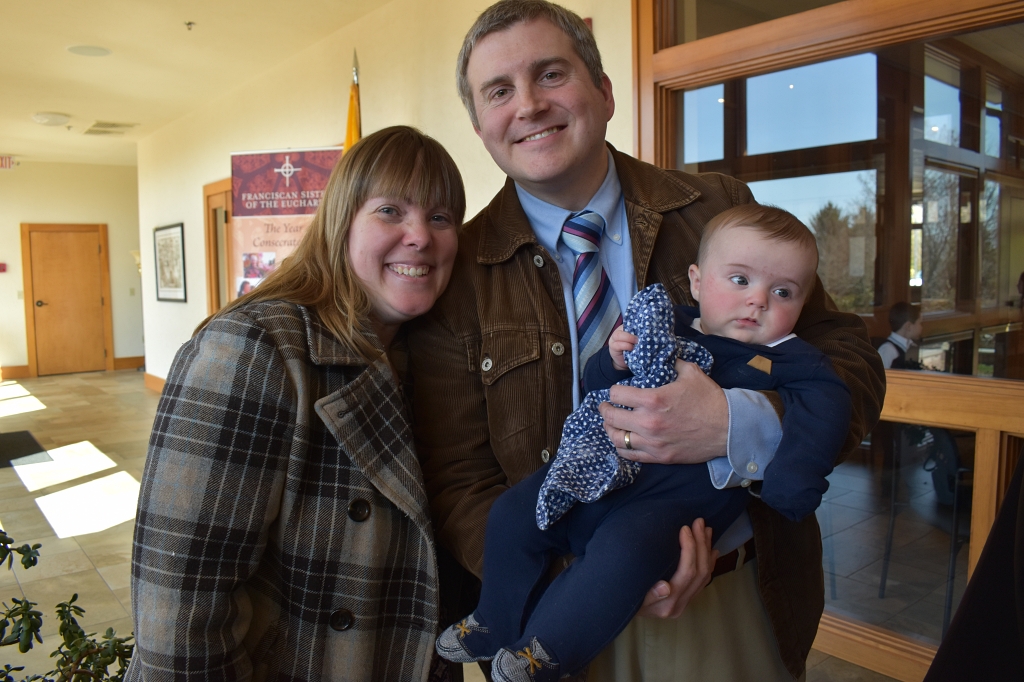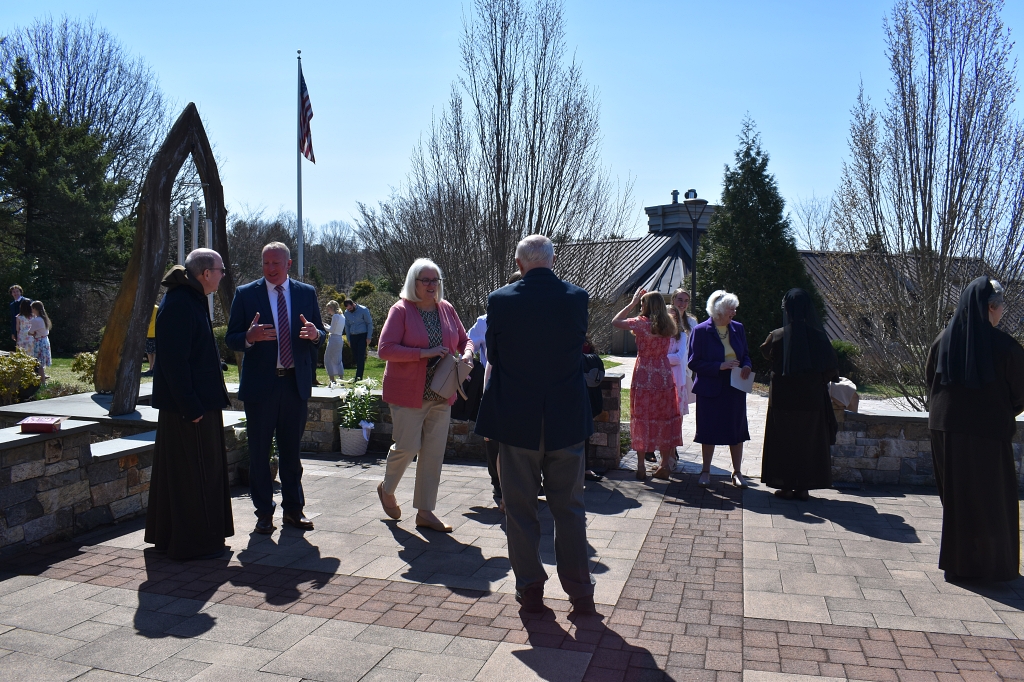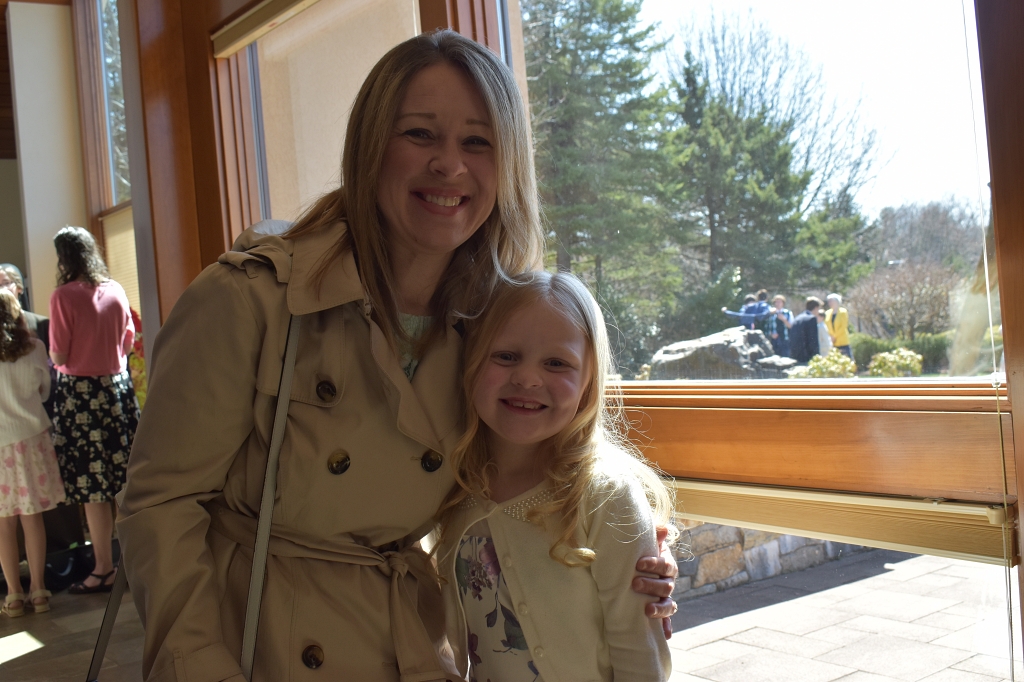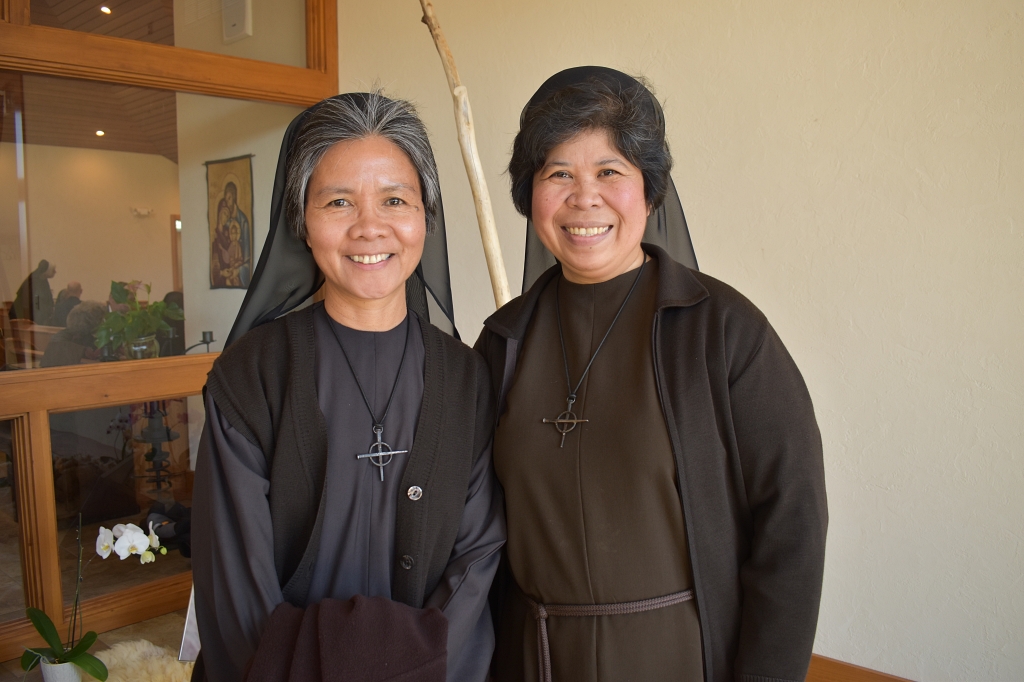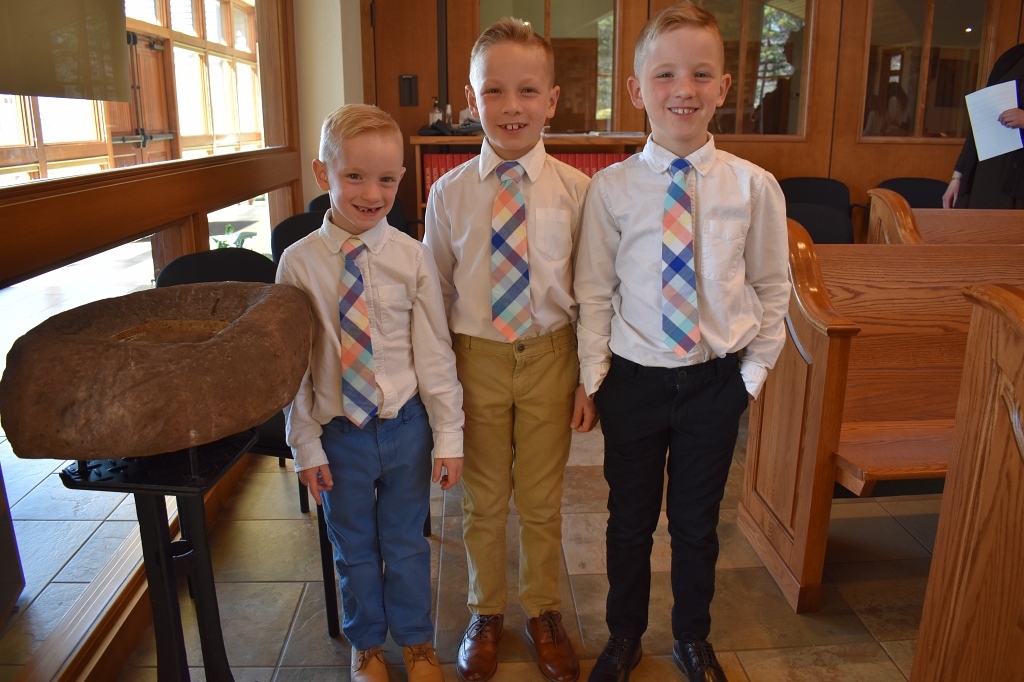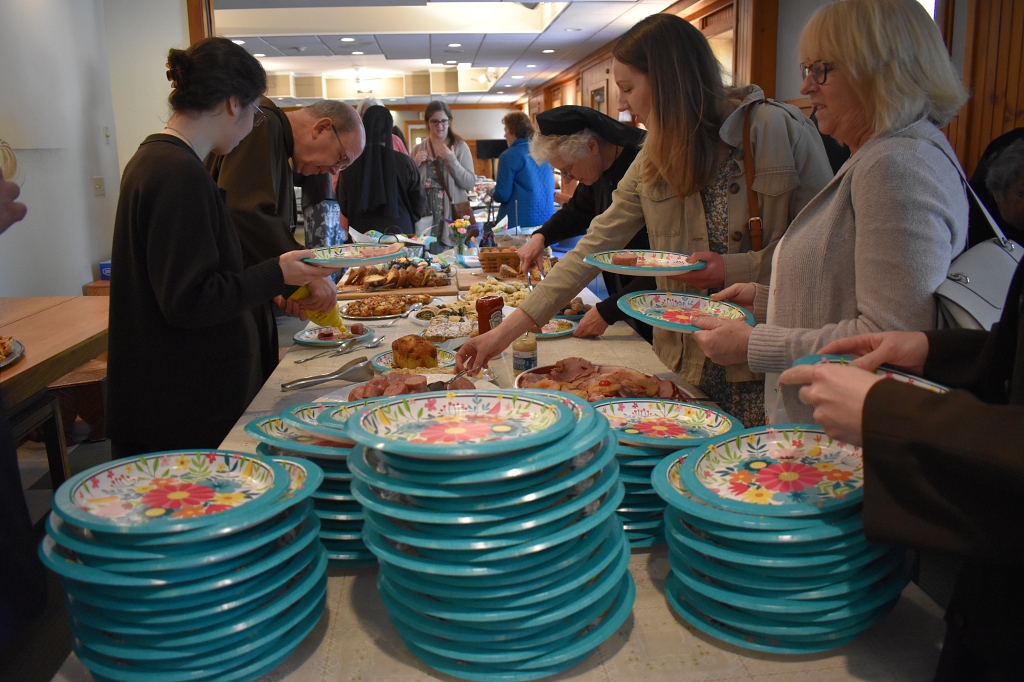MERIDEN, CT (04-11-2023) – Holy Week at the motherhouse of the Franciscan Sisters of the Eucharist was beautiful, full and meaningful. Our liturgies contained the richness of the Church’s traditions, the see-touch-smell realities of palms, walking in procession, bowing, kneeling, singing and reciting, incense arising, darkness and candle light, the blazing holy fire and the blessing of water, capped by grand Easter alleluias of voice, organ and trumpet. A hope-filled community of clergy, religious and lay faithful coming together in Eucharistic prayer, adoration and faith to celebrate the most profound mysteries of Christ’s life. Each day’s liturgy was introduced by brief presentations on aspects of Pope Francis’ catechesis of February 15, 2023. The Holy Father spoke about “The passion of evangelizing – Why proclaim, What to proclaim and How to proclaim.” The Community focused on “How to proclaim” – as lambs going out in the midst of wolves with simplicity, humility, innocence, dedication and tenderness. (See text at the bottom of this post.)
The Community is grateful for Reverend George Nursey, Ph.D. of the Diocese of Orlando who celebrated the liturgies and whose homilies enriched the Community’s experience each day. Father Nursey serves as the Dean of Pastoral Formation and Assistant Professor of Systematic Theology at St. Vincent de Paul Regional Seminary, Boynton Beach, Florida.
We share a few photos of our wonderful Holy Week. May you have a joyful and blessed Easter Season!
Click on photos to enlarge.
Excerpt from Pope Francis’ General Audience, February 15, 2023:
“The third point: how to proclaim. This is the aspect Jesus dwells on most: how to proclaim, what is the method, what should be the language for proclaiming. It’s significant: He tells us that the manner, the style is essential in witnessing. Witnessing does not just involve the mind and saying something, the concepts. No. It involves everything, mind, heart, hands, everything, the three languages of the person: the language of thought, the language of affection, and the language of work. The three languages. One cannot evangelise only with the mind or only with the heart or only with the hands. Everything is involved. And, in style, the important thing is testimony, as Jesus wants us to do. He says this: “I send you out as sheep among wolves” (v. 16). He does not ask us to be able to face the wolves, that is, to be able to argue, to offer counter arguments, and to defend ourselves. No, no. We might think like this: let us become relevant, numerous, prestigious, and the world will listen to us and respect us and we will defeat the wolves. No, it’s not like that. No, I send you out as sheep, as lambs. This is important. If you don’t want to be sheep, the Lord will not defend you from the wolves. Deal with it as best you can. But if you are sheep, rest assured that the Lord will defend you from the wolves. Be humble. He asks us to be like this, to be meek and with the will to be innocent, to be disposed to sacrifice; this is what the lamb represents: meekness, innocence, dedication, tenderness. And he, the Shepherd, will recognise his lambs and protect them from the wolves. On the other hand, lambs disguised as wolves are unmasked and torn to pieces. A Church Father wrote: “As long as we are lambs, we will conquer, and even if we are surrounded by many wolves, we will overcome them. But if we become wolves — ‘Ah, how clever, look, I feel good about myself’ — we will be defeated, because we will be deprived of the shepherd’s help. He does not shepherd wolves, but lambs” (St John Chrysostom, Homily 33 on the Gospel of Matthew). If I want to be the Lord’s, I have to allow him to be my shepherd; and he is not the shepherd of wolves, He is the shepherd of lambs, meek, humble, kind as the Lord is.
“Still on the subject of how to proclaim, it is striking that Jesus, instead of prescribing what to bring on a mission, says what not to bring. At times, one sees some apostles, some person who relocates, some Christian that says he is an apostle and has given his life to the Lord, and he is carrying a lot of luggage. But this is not of the Lord. The Lord makes you lighten your load. “Take no gold, nor silver, nor copper in your belts, no bag for your journey, nor two tunics, nor sandals, nor a staff” (vv. 9-10). Don’t take anything. He says not to lean on material certainties, but to go into the world without worldliness. That is to say, I am going into the world, not with the style of the world, not with the world’s values, not with worldliness — for the Church falling into worldliness is the worst thing that can happen. I go forth with simplicity. This is how one should proclaim: by showing Jesus rather than talking about Jesus. And how do we show Jesus? With our witness. And finally, by going together, in community: the Lord sends all the disciples, but no one goes alone. The apostolic Church is completely missionary and in the mission it finds its unity. So: going forth, meek and good as lambs, without worldliness, and going together. Here is the key to proclamation, this is the key to success in evangelization. Let us accept these invitations from Jesus. Let his words be our point of reference.”


